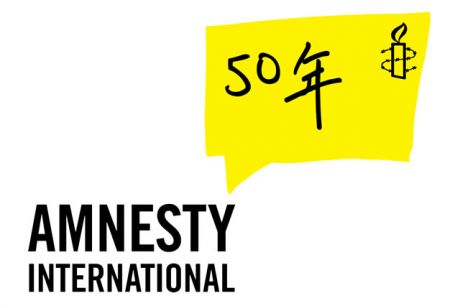As Amnesty International celebrates its 50th anniversary, its involvement in the field of business and human rights is taken for granted. But this wasn’t always the case. For the first 30 years of Amnesty’s existence, the human rights impacts of business lay beyond its remit.
Amnesty International entered this field late in the day. Already by the 1980s businesses across sectors had become legitimate targets of civil society.
Under attack were the marketing practices of tobacco firms and of companies producing breast-milk substitutes, the involvement of Barclays and others in apartheid practices in South Africa, and the failure of pharmaceutical companies to offer adequate remedies for the deforming effects of drugs such as Thalidomide. These business impacts were not framed primarily in human rights terms, because human rights organisations were as a whole not addressing them.
This changed during the 1990s when the field of business and human rights emerged as a focus of academic study, of civil society concern and of business policy. It was during this period that human rights abuses by companies were added to Amnesty International’s expanding mandate. However, this posed considerable challenges.
Many Amnesty members considered companies to be essentially a force for the good. Why focus on them when governments are a much more legitimate target?
Some international lawyers took the view that putting more emphasis on the role of companies might let States off the hook. Then there were methodological challenges for Amnesty’s researchers. Techniques used to address human rights violations committed by States were inadequate to deal with abuses by corporations. This was partly because of the ease with which companies could distance themselves from alleged violations, hiding behind the opaqueness and complexity of their business relationships, but also because they were often not the primary agents of abuses. Their culpability in aiding and abetting others was difficult to prove.
During the 1990s, Amnesty International focused on engagement with companies, such as Shell, BP and Exxon, to persuade them to face up to their impacts particularly in some of the high-profile contexts of Colombia, Nigeria and Indonesia, where corporate activities were contributing to the abuses that were taking place. Many companies adopted human rights principles and policies in response to Amnesty’s advocacy. While this led to some significant breakthroughs, it did little to stem the tide of corporate abuses, or to offer access to justice to their victims.
The limited effectiveness of constructive engagement led to a review of strategy, the outcome of which has been a shift in Amnesty International’s focus. The onus has since been placed firmly on governments and inter-governmental bodies to raise global standards and to develop the regulatory systems to hold companies accountable for complying with them. While Amnesty International continually emphasises the moral arguments and the international law foundations for doing so, there are also sound socio-economic reasons for using the law to create a level playing field for companies and for governments, and to bring about a more equitable balance of power between businesses and those affected by their activities. These arguments are more difficult for a human rights organisation to frame, but it is essential to do so if governments are to be influenced.
For the future, a key challenge for Amnesty International in reshaping its business and human rights work will be to integrate human rights into other disciplines that also seek to raise standards for companies. Let’s take climate change as an example. It is an issue that can and has been viewed through a human rights lens. It is also an issue that can be framed in environmental and developmental terms, or in terms of human security. In situations where the effects of climate change interact with armed conflict, this may become a conflict resolution issue. All these fields are expanding areas of academic study and of civil society action. While the business and human rights field has grown rapidly in recent years, partly due to the growing exposure of abuses, and partly to the normative influence of Professor Ruggie’s work, it is competing with other discourses that also seek to influence government policy. From climate change to corruption, from bio-fuels to deforestation, from privatisation to bio-piracy, the impacts of companies will continue to come under scrutiny, but not necessarily from a human rights perspective.
If the human rights movement wants to avoid going back to the 1980s when civil society concerns about business impacts were rarely framed in human rights terms, it will have to find ways of integrating the human rights framework into other disciplines. To achieve this it will become essential for human rights bodies to exchange resources with environmental and developmental organisations, borrowing some of their tools of analysis in the expectation that they will borrow ours.
An example of where this has happened has been Amnesty International’s report "Nigeria: Petroleum, Pollution and Poverty in the Niger Delta". This was followed by a joint Amnesty International-Friends of the Earth complaint to the UK and Dutch National Contact Points, accusing Shell of breaching the OECD Guidelines for Multinational Enterprises. Such inter-disciplinary collaboration will be essential if the process of mainstreaming the human rights framework into business activity is to continue.





























How should businesses respond to an age of conflict and uncertainty?
As 2024 began, European Commission President Ursula von der Leyen aptly summed up our deeply worrying collective moment. As she put it, speaking at the annual World Economic Forum in Switzerland, we are moving through “an era of conflict and...
26 March 2024 | Commentary
Commentary by Scott Jerbi, Senior Advisor, Policy & Outreach, IHRB